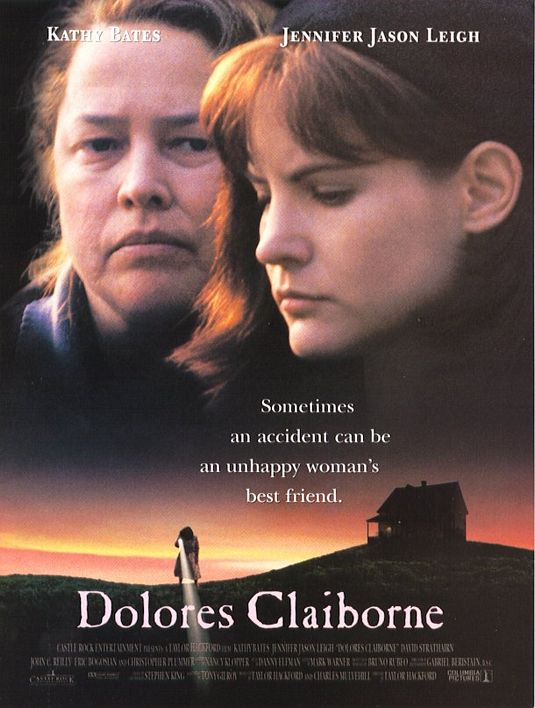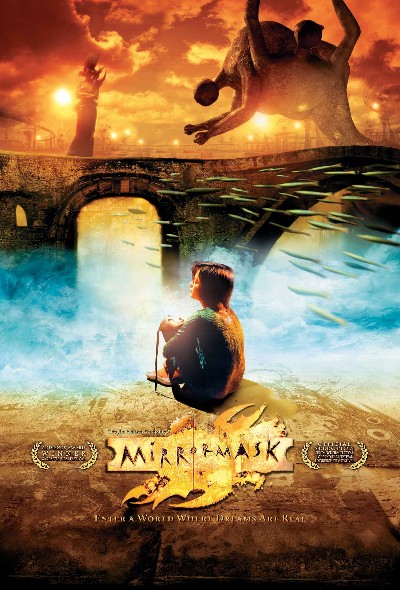Film:
Slumdog Millionaire, 2008
Starring Dev Patel, Anil Kapoor, and Frieda Pinto
Synopsis (from Fox Searchlight Pictures):
The story of Jamal Malik (Patel), an 18 year-old orphan from the slums of Mumbai, who is about to experience the biggest day of his life. With the whole nation watching, he is just one question away from winning a staggering 20 million rupees on India’s “Who Wants To Be A Millionaire?” But when the show breaks for the night, police arrest him on suspicion of cheating; how could a street kid know so much? Desperate to prove his innocence, Jamal tells the story of his life in the slum where he and his brother grew up, of their adventures together on the road, of vicious encounters with local gangs, and of Latika (Pinto), the girl he loved and lost. Each chapter of his story reveals the key to the answer to one of the game show’s questions. Each chapter of Jamal’s increasingly layered story reveals where he learned the answers to the show’s seemingly impossible quizzes. But one question remains a mystery: what is this young man with no apparent desire for riches really doing on the game show? When the new day dawns and Jamal returns to answer the final question, the Inspector and sixty million viewers are about to find out. At the heart of its exuberant storytelling lies the intriguing question of how anyone comes to know the things they know about life and love.
My Thoughts (SPOILERS!):
My first thought is this- if you haven’t seen this movie, do it, now. It is worth driving an hour to the nearest big city and going to an art-house theater, trust me. Also if you haven’t seen this movie, I warn you, this post may have spoilers. That being said if you want to continue reading I would be thrilled.
Now, onto the film. There are many spiritual themes in the movie, including love, destiny, and the need for the elimnation of poverty. The film focuses on the life of Jamal, a Muslim who grew up in the slums of Mumbai (may the city be in our thoughts and prayers due to the recent terrorism there). We learn of his story through his participation in a game show, and how the answers to the questions relate to periods throughout his life. Early on the film sets up the two major characters in Jamal’s life – his brother Salim, and his love Latika.
It is clear that he and his brother are tied together, two side of the same coin. Their teacher refers to them as “Athos” and “Porthos”, two of the three musketeers, that is how close they are. But, for how close they are they have radically different characters. Jamal is younger, more idealistic, hopeful, as well as pure, whereas Salim is older, an inherent schemer and survivor.
Early on we see their characters diverge when Salim locks Jamal in the outhouse for taking too long and costing Salim a customer. The biggest moviestar in India was landing in his private helicopter and Jamal is determined to see him, so he plunges through the hole to the vile muck below in order to escape. Covered in human waste he rushes to the crowd and his commitment is rewarded with an autograph. Jamal is ecstatic, but only briefly because Salim ends up stealing the prized signed photo and selling it for a buck. Devastated Jamal pleads to his mother, but there is nothing that can be done except to forgive his brother.
“Blessed is he who preferreth his brother before himself.” ~
Their dependence on one another is solidified when acts of violence erupt in their slum as radical Hindus attack them for being Muslims and their mother is killed in the fray. This moment is incredibly sad, and more so when one thinks of all the unnecessary strife between people of different faiths when each religion holds similar principles such as the sanctity of human life and the golden rule. So often in the United States, especially post-9/11 we are shown the violence caused by radical Muslims, but I think this scene is incredibly important in showing that Muslims too can be victims of violence and persecution. If only we could all take to heart that:
“The purpose of religion as revealed from the heaven of God’s holy Will is to establish unity and concord amongst the peoples of the world; make it not the cause of dissension and strife.” ~
Looking back at Jamal and Salim, the now orphaned brothers, only about 7 and 9 must depend on one another. Salim, being the older brother, makes it clear that he must now be the leader and provider of the family. To do this he must make the hard choices in order to protect Jamal. This adds more depth to his character. Now it is as if his sins are a way to keep Jamal pure, protecting him from having to make the morally ambiguous decision.
Enter Latika. An orphan, like the boys, we first meet her standing in the rain. The boys have found shelter, and Jamal wants to let her share, but Salim vetoes. Again we see Jamal’s purity and inherent “goodness” and Salim’s view that survival means looking out for themselves. In the end Latika is invited in when Salim is sleeping, and her friendship with Jamal is solidified.
The three frequent dumps where they can find scraps of food as well as rubbish to clean up and sell. It is here that they are discovered by a man who runs an orphanage. At first he seems like a savior, providing them food to eat, shelter, a place to sleep, and other kids to learn and play with. However, it becomes clear there is a dark side to this seeming utopia as the kids are taught how to be more effective beggers through learning songs and holding babies.
Here it becomes even more evident that the extremes of wealth and poverty need to be eliminated, because these children have fallen through society’s cracks and are now being taken advantage of because they have no other options. It is sad that so close there are wealthy neighborhoods where the crime bosses and moviestars live.
Salim who is obstinate and strong becomes the right-hand-child to the bosses, acting as a bouncer of sorts and keeping the other kids in line. His ego is puffed up and he treats the other kids roughly, but all this changes when he is given an assignment, to bring a fellow orphan to the bosses. The orphan sings a song he has been taught very well and is praised for it. The boss says he is ready, and then chloroforms him, and proceeds to blind the child with a hot spoon. This is because singing blind children make more money begging. Salim wretches, unbelieving that these men would take away a child’s sight to make some extra money. Even that is a line he can’t cross morally.
Then he is told to bring Jamal over. He plays along, but his protection instincts are fully alerted. He does not want Jamal to suffer the same fate, and so when the time comes to chloroform Jamal, Salim instead throws the bottle in the face of the man, grabs Jamal’s hand and runs. Latika, watching from the bushes, runs with them. They know they must escape or they will be beaten and probably blinded.
Soon the kidnappers catch up to them as the children are about to board a train. Salim makes it up first, and pulls up Jamal. Then it is Latika’s turn, but as Salim holds her he lets go. Jamal is appalled, but Salim claimed it was Latika who let go and that she is strong and can fend for herself. However, this is another instance where for Salim protecting himself and his brother is more important than anything else. For him Latika was a sacrifice, a way of slowing down their pursuers.
The boys then spend the time on trains selling odd things, and stealing from passengers out of desperation. Eventually they make it to the Taj Mahal where they realize they can make a lot of money out of gullible tourists who also have much guilt for not being able to help end the poverty they see all around them. Yet another instance of how these extremes of wealth and poverty cause disunity, as the impoverished are so desperate and in need that they thieve and deceive the wealthy, foreign tourists, probably leaving them with a dislike of India as a whole.
Though out time Jamal convinces Salim to return to their native Mumbai and to get legitimate jobs at a restaurant and to look for Latika. Salim makes it clear that he is placating Jamal, and that he likes this life they now have, preying on tourists. He also reminds Jamal that of a city with tens of millions of people he is not likely to find Latika. Again the character traits of idealism and hope on the one-hand, and cynical survivalism show through in these brothers.
Jamal runs into the blinded friend on the street singing, and gives him a US$100 bill he had stolen from a tourist at the Taj Mahal that he had been saving- partially out of penance, and partially to find information about Latika. The blind boy tells him she is in the redlight district and goes by the name of Cherry. Jamal is ecstatic and goes to tell Salim.
Together they go, and find her, about to have her virginity taken for a high price by an old man, and the Orphanage Boss is clearly now her pimp. In order to save her, Salim brandishes a gun and kills the boss-man to the shock of all involved. It is clear there is no going back. The three “musketeers” reunited seek shelter in an abandoned hotel, where Latika tells Jamal she knew he would come back and save her. Unfortunately Salim, drunk, and clearly destroyed from having killed for the first time, kicks Jamal out of the room and makes it clear that because he saved their lives and saved Latika from prostitution he deserved her virginity. Salim’s moral compass has now completely dissolved as he broke his brother’s heart and violated the girl he claimed to have saved.
When Jamal returns Latika and Salim are nowhere to be found. Years pass and he is alone. He makes his way in the world legitimately first in the restaurant, but finally as an assistant at a Phone Company. It is here that he rediscovers his brother by finding his phone number in the directory. He had first tried Latika but did not know her last name so she was impossible to find.
His brother is thrilled to take the call and sets up a time to meet. Unlike Jamal, he has not gone the legitimate route. He is now a thug for the biggest mob-boss, who he sought protection from for killing the smaller orphanage running crime-lord. Jamal imagines throwing his brother off the building, and ends up punching him, the most violent action he has taken thus far. His brother pleads for forgiveness and claims that he didn’t mean to abandon him but that he and Latika had to flee because the security guard for the hotel had come. Jamal is still skeptical. He asks about Latika, and his brother says to forget about her, that she is the property of the mob-boss now.
Jamal finds her anyway, posing as a dishwasher, and convinces Latika to run away with him. However, their attempt is unsuccessful and she is recaptured and cut with a knife as punishment. Jamal is devastated that he harmed Latika and when he finds that the mob-boss has moved fears he will never see her again. That is why he sought out to be on “Who wants to be a Millionaire?” because he prayed she would be watching and that they would find each other again, even if he didn’t win the money (but if he did, he would use it to help her escape and provide a good life for her).
Unfortunately, because he was an uneducated slumdog, the producers of the show thought he must be cheating. This is where the movie began, with him being tortured into telling them how, and it is where we are at the end, feeling bad for our honest hero who just happened to know the answers claiming it must be destiny. Despite all the adversity he stuck to the truth, even if it meant a lot of torture. However the thugs could see that he was being honest and convinced the producer to hear out his explanation before judging.
In the end our hero’s virtue is rewarded and he is reunited with Latika as well as won the $20 million, but not without the help and sacrifice of his brother. Salim, upon seeing his brother on TV and seeing Latika’s hope, gives her his cell phone and helps her escape. She wants him to come with her, but he refuses saying he will stay behind and stall. He then takes all of the mob-bosses money and a gun, and fills the bathtub with it and hides out there. When the boss discovers that Latika is missing he knows Salim is to blame and bursts into the bathroom which Salim had barricaded. Salim procedes to shoot and kill him, but the Boss’s other goons kill him and as he bleeds he turns the cash into literal blood-money. It is clear that this is both Salim’s last attempt to protect his brother, and his attempt at redemption to allow Latika and Jamal the happiness they deserve, and to make up for his betrayal of them both earlier in the film.
Jamal and Latika are unaware of this, and are reunited when Jamal uses his “Call a Friend” lifeline and calls Salim’s number, the only one he knows, and Latika is the one with the phone. She desperately gets to the phone just in time but is of no help since she doesn’t know the answer. It doesn’t matter though, because he has found her, and he puts it in fates hands as 60 million fellow Indians watch, hoping to see this literaly rags to riches story pan out.
It does, and the film ends with Latika and Jamal embracing at the train station, and then a Bollywood style dance number over the credits.
This film was incredibly heart-warming, and I could barely touch on all the spiritually potent content there was packed into the beautiful film full of hope, tragedy, and redemption.
Your thoughts?






